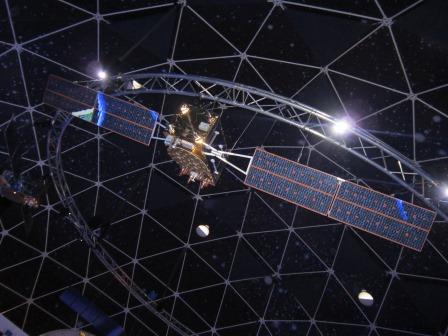 The pursuit towards eco-friendliness is radically transforming the way we think, design and work, as private companies and public organizations approach the concept of sustainability as a new frontier and a powerful trigger for innovation.
The pursuit towards eco-friendliness is radically transforming the way we think, design and work, as private companies and public organizations approach the concept of sustainability as a new frontier and a powerful trigger for innovation.
Up to now, the space industry is not implementing any analysis or quantification of the environmental impact of its activities, even though one of the main objectives of satellites
is Earth observation for environmental monitoring purposes. The causes of this shortcoming reside in the fact that production rates of satellites are extremely low, that the
launch phase is perceived as a singular event in terms of emissions of pollutants in the atmosphere, and that mission specifications and constraints are demanding and leave poor margins to alternative designs. It must however be noted that the environmental impact of a satellite is not concentrated in a single point in space and time – the launch event – but it must be evaluated considering its whole life cycle.
The GreenSpace challenge is framed within the European Space Agency development of an environmental outlook, which aims not only at the full compliance with the legislation and at the assessment of the impact of its activities, but also at laying the foundation for future evolution through innovation, ensuring a competitive advantage for European industry. ESA commits to become an exemplary space agency by promoting the sustainable use of space as a necessity and a duty for Europe. Action is necessary to turn a threat into an opportunity.
Keeping in mind the peculiarities of space operations – the only anthropogenic activities which cross all layers of the atmosphere – GreenSpace concentrates on the definition and implementation of design procedures suitable to minimize the environmental impact of space assets, both in space and on ground.
Principal Academic Tutor
Mauro Massari, Politecnico di Milano, Department of Aerospace Engineering
Academic Tutor
Giovanni Dotelli, Politecnico di Milano, Department of Chemistry Materials and Chemical Engineering “Giulio Natta”
Edie Miglio, Politecnico di Milano, Department of Mathematics
Sabrina Corpino Politecnico di Torino, Department of Mechanical and Aerospace Engineering
Gian Andrea Blengini, Politecnico di Torino, Department of Environment, Land and Infrastructure Engineering
External institutions
European Space Agency
External tutor
Luisa Innocenti, European Space Agency
Team A members
Beatrice Buffa, Architecture, Politecnico di Milano, Francesco Consonni
Nuclear Engineering, Politecnico di Milano
David Dianda, Management Engineering, Politecnico di Milano [team controller]
Filippo Manelli, Chemical Engineering, Politecnico di Milano
Massimo Molinelli, Management Engineering, Politecnico di Milano
Davide Pizzocri, Nuclear Engineering, Politecnico di Milano
Team B members
Masoud Bozorg Bigdeli, Mechanical Engineering, Politecnico di Torino
Alberto Castiglioni, Energy Engineering, Politecnico di Milano
Ludovica Frezza, Architecture, Politecnico di Milano
Diego Martinoia, Engineering of Computing Systems, Politecnico di Milano
Beatrice Matassini, Management Engineering, Politecnico di Milano
Cristina Palamini, Communication Design, Politecnico di Milano [team controller and project communication coordinator]
